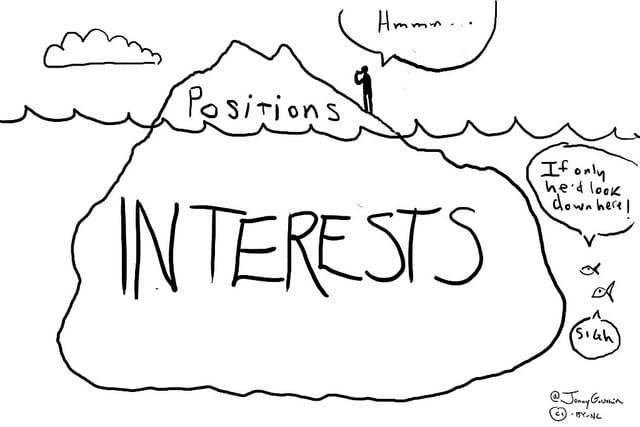by Lynda Carrier-Metz – July 2014
Last year a friend recommended a book titled “The Power of Nice,” suggesting it might help in my negotiations. I was surprised by the title, as most negotiation training involves “sticking to your guns” and overpowering the other side. Ron Shapiro, the author, is a very respected sports agent. His book shares how anyone who sits down to make a deal can get what they want by exercising the surprising “power of nice.”
If you read no further than this, one thing I have learned from reading this and other Shapiro books is this:
[dropshadowbox align=”center” effect=”lifted-both” width=”250px” height=”” background_color=”#FACC2E” border_width=”1″ border_color=”#dddddd” ]
ASK the other party what THEY NEED the outcome to be.[/dropshadowbox]Understanding their needs up front has been amazing in moving an agreement along. I expect that having the CLIENT ask what the SELLER needs has caught a few off-guard. I don’t think that is normal in the standard negotiation practice, but I have actually found the process is enjoyable and everyone seems satisfied when the contract is finalized.
Prepare
Ron’s books show you how to prepare better, probe for what they want and why, and to propose–but not going first to avoid impasses or getting backed into a corner.
Preparation is power. Successful negotiators are prepared negotiators. It takes patience and persistence but it always pays off. This could be interpreted as manipulative, but that isn’t how I see it. I try to know how my brand can help their company, how we can truly be partners as an outcome of the negotiation process. If this isn’t done at the beginning, even if you say we are open to additional opportunities, those rarely occur after the deal is inked.
Probe
Probe so you know their (a) wish list, (b) motivations, and (c) must-have list.
Listening is power. If you ask the right questions and LISTEN the other side will give you the input you need to make the deal you want.
Sometimes clients don’t want to ask questions because they appear to be uninformed or stupid. And even if they ask, sometimes they aren’t listening. This is an area I continue to be challenged on, digging deeper vs. accepting a surface response. I once heard that the first answer to a question isn’t where you gain knowledge, but if you wait quietly for the second response, you will learn so much more. That’s when the person has a chance to really think about their response. Another barrier to probing is being afraid to ask the question. In your mind you may already think you know the answer, one you won’t like. But don’t make the decision for them without knowing: Ask.
Propose
The three rules of proposing are: (1) Try not to make the first offer, (2) Never (immediately) accept their first offer, and (3) set your aspirations high.
Patience is power. With a few tweaks, since reading Ron’s books, I have found the first offer isn’t that far off from what we had hoped to achieve. Like many industries, ours is highly competitive, the margins are low, and everyone is being held to a higher return than sometimes is reasonable. Understanding all the options available so that you can get the best payback on your investment is critical. If you propose first, you may miss an opportunity to know all the possibilities a company has to offer. Be patient. Have a good team to bounce off ideas. Be persistent.
Budgets and expectations are high. I found Ron’s approach lowered the stress level for everyone involved in negotiations and outcomes have been more successful for both parties.
Reference: “The Power of Nice” by Ronald M Shapiro and Mark A Jankowski
Cover photo courtesy of Jonny Goldstein.

